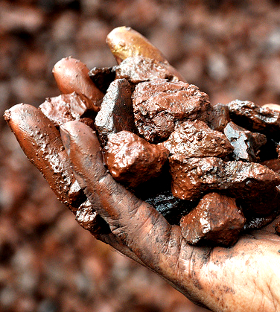MCA warns of mine tax job losses
 WA’s big new mining tax could cost thousands of jobs.
WA’s big new mining tax could cost thousands of jobs.
The Minerals Council of Australia (MCA) has commissioned a report finding that the WA Nationals' proposed iron ore tax would cost 7,200 jobs if adopted.
The tax would increase production taxes for BHP Billiton and Rio Tinto from 25 cents to $5 a tonne, raising $7.2 billion over four years.
The report, WA Iron Ore Royalty Analysis, says the tax would shrink the Australian economy by $2.9 billion while raising just $2.3 billion.
The analysts claim the WA economy would be the biggest loser, with a 4.3 per cent reduction in employment in the Pilbara.
State gross product would be 1.1 per cent lower, Deloitte says, with a total of about 3400 fewer WA jobs than without the tax.
“The state hardest hit by the tax would eventually see little benefit from the revenue it raised: over the longer term, Western Australia would ultimately suffer the majority of the economic cost, while receiving only a small share of the benefit from additional government revenues,” the report read.
The report said that the tax ratio paid by the minerals sector is already rising, not falling.
Nationals leader Brendon Grylls dismissed the research, saying the MCA was just “paying for misleading analysis of the policy”.
“The Minerals Council have got a report from Deloitte to say that the industry will shut down - that's just unbelievable and people will judge it for what it is,” Mr Grylls said.
“Today, the price is above $US70 and a report funded by the Minerals Council concludes jobs will be lost. It doesn't stand to reason.
“I would just hope the people of Western Australia see the campaign for what it is, which is based on misinformation and trying to confuse people into not supporting a fair return for the iron ore sector.”
MCA chief Brendan Pearson said it was a bad deal.
“In the end it won't raise any extra money for WA because most of the money will end up in other states by virtue of our GST distribution arrangements - it's a net lose-lose for WA,” Mr Pearson said.
“This is not stitch up — this is a serious economist providing serious input into a debate that requires serious evidence.
“In raising all that extra revenue, it will harm one of Western Australia's most important industries, that iron ore sector, and cost jobs in WA itself, so it's really a no-brainer in terms of bad ideas.”








 Print
Print